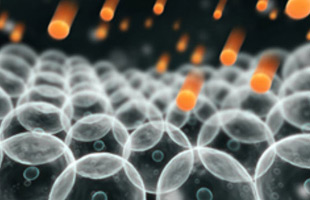Oxidative stress
Sperm produce small amounts of free oxygen radicals (oxidants) that are required for their normal function. It is important that these free radicals are removed as soon as they have performed their function so that their levels remain low. There are antioxidants in the sperm environment that keep the levels low. However, if the balance of oxidant production and antioxidant activity is disturbed, high levels of free oxygen radicals will build up, causing oxidative stress. This leads to sperm damage and consequently affects fertility. ROS can be simply measured in a fresh semen sample
What we know about oxidative stress and infertility
- 25 – 40% of infertile men have high levels of oxidants and a reduced antioxidant capacity compared with fertile men
- Oxidants can cause poor sperm motility and vitality, poor sperm shape (morphology) and reduced sperm count
- Oxidant levels can be high in men with both normal and abnormal semen parameters
- High oxidant levels cause sperm DNA fragmentation
- High oxidant levels are correlated with an increased time to natural pregnancy
- High oxidant levels impair fertilisation, affect blastocyst development and reduce pregnancy rates after IVF.
Causes of Oxidative Stress
- Infection and pus cells
- Prostatitis
- Varicocoele
- Surgery
- Undescended testes
- Chronic disease
- Certain drugs
- Cigarette smoking
- Alcohol
- Excessive exercise
- Heat exposure
- Poor diet
- Exposure to harmful substances
Treatment
Varicocele is a major cause of male infertility and is associated with oxidative stress. Varicocele repair reduces oxidative stress and DNA damage, but also increases pregnancy rates.
Treatment of infections may also reduce oxidative stress. A large randomised study compared men with Chlamydia or Ureaplasma infection with and without antibiotics for 3 months. Those treated showed a significant fall in oxidative stress, improved sperm motility and a significant increase in pregnancy rates.
If there is no known cause for oxidative stress, a change in lifestyle and a diet rich in antioxidants, designed to protect against oxidative stress may help. Randomised placebo-controlled studies have shown that oral antioxidant supplements can decrease oxidative stress levels and sperm DNA damage, as well as improving pregnancy rates.

Fertility Testing
- Comprehensive semen analysis
- Sperm DNA damage and genetic screening
- Oxidative stress
- Retrograde ejaculation
- Infection screening
- Testicular ultrasound scanning
- Hormone profiles
- Well man screening
Have a question?
We understand that fertility is a very personal and private matter. We’re here to answer any questions you may have. Contact us to arrange an appointment or read our FAQs.
